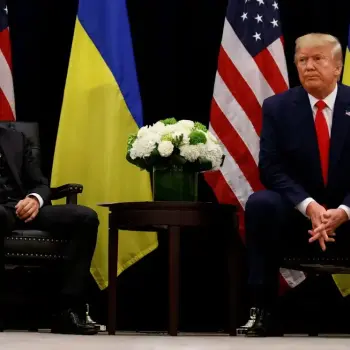For football fans of all ages, the awful news about former Penn State defensive coordinator Jerry Sandusky is a blow. Sandusky has been indicted on charges of sexually abusing eight underage boys between 1994 and 2009—boys whom he had the opportunity to victimize because they were participants in his charity organization, The Second Mile.
Incidents with at least two boys were witnessed by third parties in the athletic facilities on the Penn State campus. One was reported to head coach Joe Paterno in 2002, three years after Sandusky had retired. Paterno notified the university's athletic director, Tim Curley, of the report (which came from his assistant, Mike McQueary), and took no further action. Curley reportedly told McQueary later that Sandusky would be prohibited from bringing boys onto the campus and would lose his keys to the athletic facilities. But the enforceability of these measures was questionable, and in any case, Pennsylvania authorities have now charged Curley and university vice president Gary Schultz with failing to report the 2002 incident to law enforcement.
Paterno and university president Graham Spanier have been removed from their positions, and the recriminations and arguments have begun. On Thursday, a crowd of Penn State students assailed the university's decision to dismiss Paterno, expressing their anger by shouting curses and overturning a news van. In this sad and bizarre story, one of the peculiar elements is that the district attorney who handled the first sexual-abuse allegations against Sandusky, in 1998, went missing in 2005 and was declared dead in 2011, although his body has never been found. (There is no implication that his fate was connected with the Sandusky case.)
America knows this much as I write. I recount the details we know so far because there is value in seeing them laid out sequentially. The crimes in question are heinous; the evidence suggests that the university administration should have done more to investigate Sandusky's activities, and should have reported them to the police. That said, the Sandusky saga is a study in different perspectives on conscience, law, and morality.
One of those perspectives is that of the adult professional world. It is the one we see in operation with the actions of McQueary, Paterno, and Curley. McQueary and Paterno both chose to give their reports to their superiors in the organization. Perhaps it occurred to them to go to the police; perhaps not. But they did what most employees of a large organization would do in their circumstances: they reported to their superiors. There is nothing inherently corrupt about this institutional approach; its effectiveness at discouraging misconduct depends on the character and actions of those at the responsible levels of authority.
Joe Paterno's defenders have pointed out that from both a legal and an organizational standpoint, he did what was required of him. He was not the official responsible for supervising the behavior of retired coaches in university facilities, but he reported what he had been told to the official who did have that responsibility.
His defenders are not wrong in their argument. For Paterno to be sure that his action put an end to Sandusky's misconduct, he would have had to do more than was required of him by law or institutional obligation. And once he had told what he knew to the responsible superior—the athletic director—the accountability for further handling of the problem rested with Curley.
The university's board of trustees has adopted a different perspective, however: that of an organization seeking to address a bad situation with ceremonial repudiation and punishment. The angry students who have taken exception to Paterno's dismissal see it—correctly—as a gesture, one that cannot affect or redress Sandusky's sexual abuse of boys. These students have a perspective of their own, one that emphasizes a point-by-point, ledger-like "fairness" in meting out institutional punishment.
But while the students may have logic on their side, any adult who has had organizational responsibility understands why the trustees acted as they did. Human organizations are limited in their options for expressing values, intent, and rebuke. The trustees clearly wanted to send a message about the significance of the crimes and how seriously the university leadership takes them. It is quite true that firing "JoePa" won't undo or expiate the harm done to Sandusky's victims, but the trustees hope it will serve as a trenchant, unmistakable warning.





